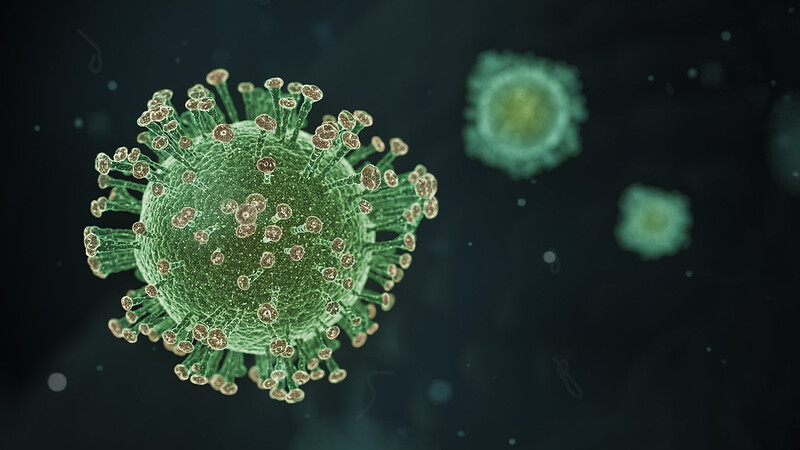Analysis: variants and the Covid-19 pandemic
The emergence of Covid-19 variants has added a new layer of complexity to the pandemic, enabling the virus to spread more efficiently around the population. The consequences for public health—if managed poorly—can be devastating.
It is necessary, then, to examine the reasons behind why such variants appear.
How do Covid-19 variants form and what are their effects on the human body?
A virus itself is a fairly simple particle in structure, consisting of genetic material (DNA or RNA) encased in a protein capsule. Once it has entered a new human body, the virus has one goal and one goal only: to replicate itself as much as possible.
Once the virus enters the body, it moves along the surfaces of cells until its proteins start to bind with specific receptors on ‘host cells’ (usually healthy human cells). The DNA or RNA enters the host cell when the virus and cell combine, allowing the virus particle to reproduce inside it. Infection begins if enough viral particles successfully penetrate and damage a sufficient amount of host cells. Crucially, this process is aided if an individual is unvaccinated or has waning vaccine protection. In the case of the coronavirus, this infection often leads to noticeable symptoms, such as high temperature and persistent cough.
What are mutations?
Mutations are natural, random changes to the DNA or RNA base sequence within the virus particle. Examples of mutations include:
Mutations can often go undetected if there is no change to the code that the base sequence forms. A variant forms when the codon (group of three bases that codes for a protein) changes in a way that subsequently alters the instruction.
Despite mutations being a natural occurrence and a key part of evolution, the longer the virus exists, the higher the chance of a mutation. Scientists are concerned that this may lead to Covid-19 evolving over time into something even more dangerous for our health.
For instance, the B117 or ‘Alpha’ variant developed from specific mutations that allowed the virus to bind to human receptors and enter cells more easily. The Delta variant is referred to as a double mutant, where two mutations have occurred, causing even more harmful effects. Specifically, these mutations made the virus significantly more transmissible, making it easier for people who already have had the coronavirus to be re-infected.
On a more positive note, vaccination provides us with an immune response that is considerably stronger than our own organic immune response, which effectively combats the variants. Experts think that it is very unlikely that a variant will emerge that completely evades our vaccines.
Covid-19 variants will always be searching for a way around the barrier of protection that has been established by inoculation. But if the virus continues to spread, it is a worry that the current vaccines will not be powerful enough to keep it at bay.
The fact that many developing countries have yet to receive sufficient amounts of vaccine doses grants the virus more time to evolve through new, harmful mutations.
The Omicron variant has more mutations than Delta, Alpha, Beta and Gamma variants, speeding up the rate of transmission. ‘Spike proteins’ containing 32 mutations help the virus to enter human cells. The 10 mutations on the ‘receptor binding site’ allow easier entry to host cells. Preliminary lab studies show that two doses of the Covid-19 vaccine may not be enough – the UK has now rolled out its booster campaign, with the intention of increasing immunity.
At a press briefing this Thursday, Hans Kludge, the regional director of the World Health Organisation (WHO), had this to say: “As of 10 January, 26 countries reported that over 1% of their population is catching Covid-19 each week…” Provided current trends continue, he suggested, most people in Europe will become infected with the Omicron variant in the next 6-8 weeks.
The Omicron variant, first reported in South Africa, is not the only nascent variant to have been documented: in the last few days, a new strain of coronavirus, ‘Deltacron’, has reportedly been detected in Cyprus. This demonstrates just how rapidly the coronavirus is mutating- a trend that may lead to new, potentially harmful, variants emerging.
Ultimately, variants are a reminder that the pandemic is not over. The only way to definitively prevent them from appearing is to stop the virus itself, which is clearly not an easy task.
Featured image: Yuri Samoilov with licence
